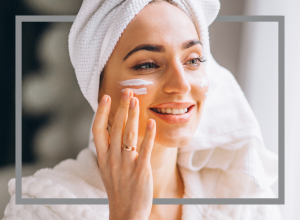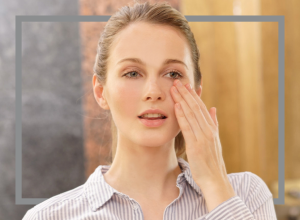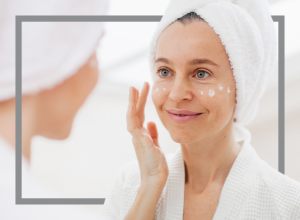During puberty, it was easy to get pimples under control or even avoid them altogether, much to the envy of your classmates. But suddenly they appear at 30 or later.
And this time quite unsightly, in the form of inflamed pimples, pustules and blemished skin. This is often late acne, known as acne tarda. In this article, we explain why acne can also occur in adults and what can help: Skin blemishes and acne in adults.
What exactly is a late acne?
Environmental influences, stress, hormonal changes, medication, an unhealthy diet or too much or incorrect care can cause the skin to react with blemishes, redness and sometimes even forms of acne. Blemishes are usually a sign that the skin is struggling with problems.
Contrary to many preconceptions, it is not a lack of hygiene but rather, for example, excessive hormone production that causes an imbalance in the skin. This then manifests itself in the form of unsightly and often inflammatory blackheads (comedones) and pimples. The cause: sebaceous glands become clogged, leading to the formation of blackhead precursors. These develop into all the other skin symptoms typical of acne, including open and closed blackheads. Due to the overactivity of the gland, a certain bacterium (Propionibacterium acnes) finds improved growth conditions in the sebaceous gland excretory duct and multiplies. The result: pustules, papules and nodules (source: https://www.apotheken-umschau.de/Akne). If acne in younger years is often accompanied by very oily skin, the skin tends to be drier in acne tarda.
It mainly affects women over the age of 30, which can be caused or triggered by pregnancy or discontinuation of the pill. Late acne is a chronic disease and should always be examined by a dermatologist to find out the causes of the inflammation. Only then can a decision be made as to what is best for the skin.
What helps with blemishes and acne in adults?
With simple steps, you can provide direct support yourself, including measures such as stress reduction, a balanced diet and skin care that is right for your skin type. What is important here are treatments and care that gently bring the skin back into balance, reduce inflammation, prevent blemishes and also make the complexion look healthy again. And most importantly: without over-caring or irritating.
Gentle cleansing is recommended here, which does not further dry out and irritate the skin, but gently removes excess sebum. In addition, the cleansing and, above all, the subsequent care should have antibacterial properties. The following also applies to skin care:
- light texture
- moisturizing
- non-comedogenic
Leading dermatologists, such as Prof. Dr. med. Kristian Reich, have dedicated themselves to this topic. In collaboration with the Dermatologikum, the microalgae active in gredient Spiralin has been further developed and put through its paces for the care of problem skin. The microalgae active ingredient has the ability to successfully ward off attacks by natural enemies such as fungi and bacteria with effective defense and regeneration systems. Human skin benefits from this, it receives a moisture booster and is simultaneously strengthened against damaging environmental influences such as free radicals or germs.
Other high-quality natural active ingredients such as:
- Willow bark extracts (antibacterial, keratinolytic),
- Grape seed oil (antioxidant, protects the cell membrane),
- Witch hazel extract (toning, astringent),
- Jojoba oil, coconut oil or licorice root extract
also promote the skin’s natural protective mechanism. These can be found in the skin care line of skinicer products, among others.
Tip:
It is also important to ensure that the products are free from synthetic preservatives, silicones and mineral oil-based ingredients, so that the skin is not covered in a film of additives but can regenerate naturally.
Questions? Please send an email to: info(at)ocean-pharma.de or take a look at our expert tips. There we have lots of interesting tips and information about skin health and skin care.
Image source: popcorner / shutterstock.com
Experten-Tipp entstand in Zusammenarbeit mit:

Prof. Dr. med. Kristian Reich
Prof.Dr.med. Kristian Reich studied German, philosophy and medicine. He completed his studies in Freiburg and Munich. This was followed by clinical and immunological training at the university hospitals in Munich, Bern, London, Tübingen and Göttingen as well as stays abroad in Los Angeles and Boston.
He subsequently obtained his doctorate in Munich, completed his specialist examination in Göttingen and habilitated in the field of immunodermatology. His research and teaching focused in particular on the fields of immunology, allergology and oncology. In 2003, Prof. Reich received the Herbert Herxheimer Research Prize of the German Society for Immunology and Allergology for his research.
Prof. Reich is also head of translational research into inflammatory skin diseases at the Institute for Health Services Research in Dermatology and Nursing at the University Medical Center Hamburg-Eppendorf.






